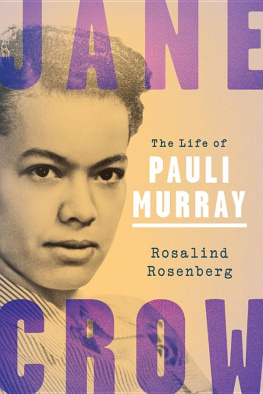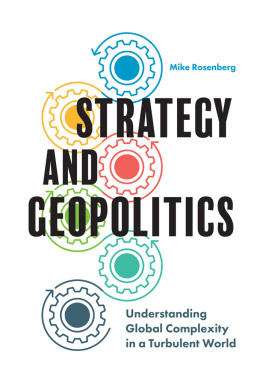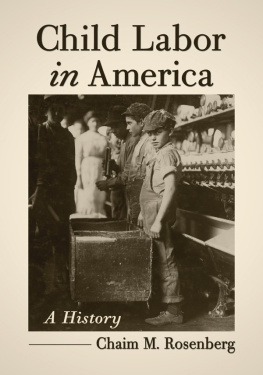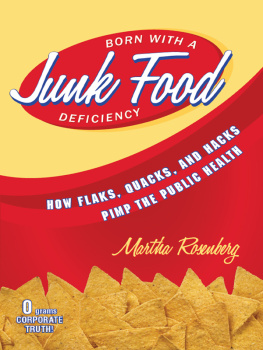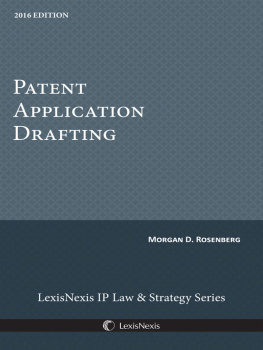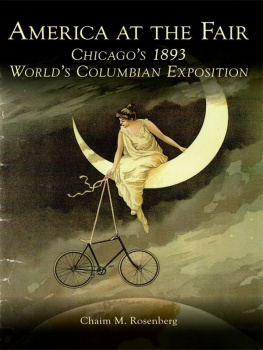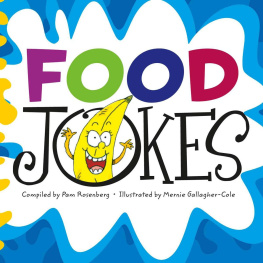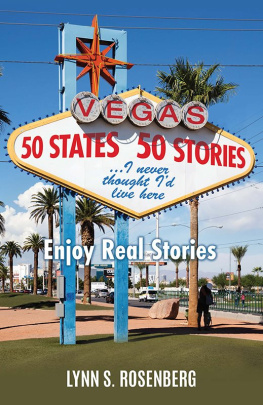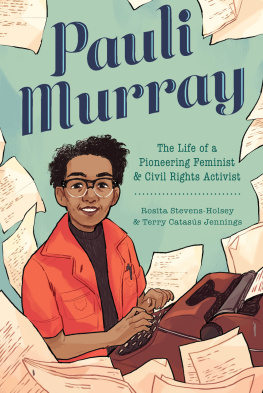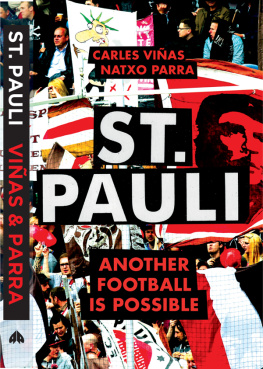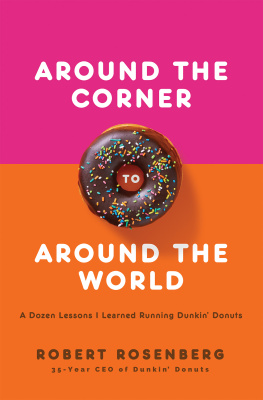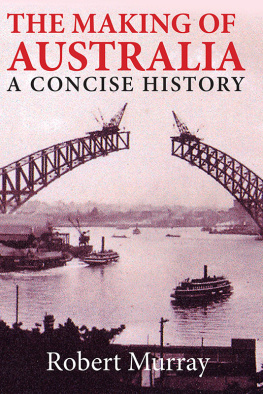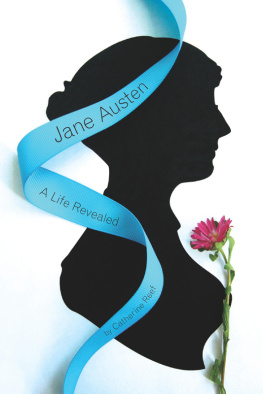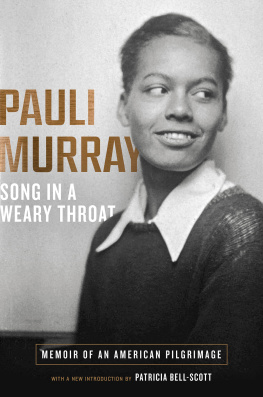Rosenberg - Jane crow - the life of pauli murray
Here you can read online Rosenberg - Jane crow - the life of pauli murray full text of the book (entire story) in english for free. Download pdf and epub, get meaning, cover and reviews about this ebook. year: 2017, publisher: Oxford University Press, genre: Non-fiction. Description of the work, (preface) as well as reviews are available. Best literature library LitArk.com created for fans of good reading and offers a wide selection of genres:
Romance novel
Science fiction
Adventure
Detective
Science
History
Home and family
Prose
Art
Politics
Computer
Non-fiction
Religion
Business
Children
Humor
Choose a favorite category and find really read worthwhile books. Enjoy immersion in the world of imagination, feel the emotions of the characters or learn something new for yourself, make an fascinating discovery.
- Book:Jane crow - the life of pauli murray
- Author:
- Publisher:Oxford University Press
- Genre:
- Year:2017
- Rating:5 / 5
- Favourites:Add to favourites
- Your mark:
- 100
- 1
- 2
- 3
- 4
- 5
Jane crow - the life of pauli murray: summary, description and annotation
We offer to read an annotation, description, summary or preface (depends on what the author of the book "Jane crow - the life of pauli murray" wrote himself). If you haven't found the necessary information about the book — write in the comments, we will try to find it.
Jane crow - the life of pauli murray — read online for free the complete book (whole text) full work
Below is the text of the book, divided by pages. System saving the place of the last page read, allows you to conveniently read the book "Jane crow - the life of pauli murray" online for free, without having to search again every time where you left off. Put a bookmark, and you can go to the page where you finished reading at any time.
Font size:
Interval:
Bookmark:

Oxford University Press is a department of the University of Oxford. It furthers the Universitys objective of excellence in research, scholarship, and education by publishing worldwide. Oxford is a registered trade mark of Oxford University Press in the UK and certain other countries.
Published in the United States of America by Oxford University Press
198 Madison Avenue, New York, NY 10016, United States of America.
Oxford University Press 2017
All rights reserved. No part of this publication may be reproduced, stored in a retrieval system, or transmitted, in any form or by any means, without the prior permission in writing of Oxford University Press, or as expressly permitted by law, by license, or under terms agreed with the appropriate reproduction rights organization. Inquiries concerning reproduction outside the scope of the above should be sent to the Rights Department, Oxford University Press, at the address above.
You must not circulate this work in any other form and you must impose this same condition on any acquirer.
Library of Congress Cataloging-in-Publication Data
Names: Rosenberg, Rosalind, 1946 author.
Title: Jane Crow : the life of Pauli Murray / Rosalind Rosenberg.
Description: New York, NY : Oxford University Press, 2017. | Includes bibliographical references and index.
Identifiers: LCCN 2017000717 (print) | LCCN 2017000857 (ebook) | ISBN 9780190656454 (hardback) | ISBN 9780190656461 (Updf) | ISBN 9780190656478 (Epub)
Subjects: LCSH: Murray, Pauli, 19101985. | African American
intellectualsBiography. | African American poetsBiography. | African
American lawyersBiography. | African American civil rights workersBiography. | African American feministsBiography. | Episcopal
ChurchClergyBiography. | Social reformersUnited StatesBiography. |
Civil rights movementsUnited StatesHistory20th century | BISAC: BIOGRAPHY & AUTOBIOGRAPHY / Women. | BIOGRAPHY & AUTOBIOGRAPHY /Cultural Heritage.
Classification: LCC E185.97.M95 R67 2017 (print) | LCC E185.97.M95 (ebook) | DDC 305.42092 [B]dc23
LC record available at https://lccn.loc.gov/2017000717
For Gerald Alan Rosenberg (in memoriam)
and
Jeffrey John Parish
The inspiration for this biography came from Ruth Bader Ginsburg, whom I met in 1974 at a Columbia University faculty seminar. I was a newly arrived assistant professor of history. Ginsburg, Columbia Law Schools first tenured woman professor, had already achieved fame as the countrys leading feminist legal advocate. Serving half-time as head of the Womens Rights Project at the American Civil Liberties Union (ACLU), she had expanded the Supreme Courts understanding of the Fourteenth Amendment to protect not only against discrimination based on race but also discrimination based on gender. As a young feminist, I wanted to understand the legal change Ginsberg was engineering; as a historian, I was curious about its roots. Over the next five years, until she left to become a judge on the Court of Appeals for the DC Circuit, and intermittently thereafter, Ruth patiently answered my questions.
For many years, the knowledge she imparted made it no further than my classes in womens and legal history. Then, in 1992, I included Pauli Murray, as the precursor to Ginsburgs reinterpretation of the Fourteenth Amendment, in my book Divided Lives: American Women in the Twentieth Century. When I learned that Murrays papers were being processed at the Schlesinger Library, I began research trips there that would last two decades.
Many scholars helped me along the way. My Barnard colleague Nancy Woloch lived with this manuscript from beginning to end. Over lunch and in each others offices, she helped me think through any number of tricky interpretive problems. She read every word and offered astute criticisms, especially on sections that dealt with protective labor legislation.
Susan Ware accepted my first essay on Murray in her collection of American biographies, Forgotten Heroes (1998). In 2002, she included my contribution on Murrays concept of the conjunction of race and gender in a collection she called a Dialogue on Murray for the Journal of Womens History. Most generously of all, she undertook the job of whittling an early draft of this book down to a more readable size.
On an early research trip to the Schlesinger Library in 1997, I encountered Daniel Horowitz. Working at an adjoining table on the Betty Friedan Papers, he came across a receipt from Murray for typing she did for Friedan in the mid-1950s, before either was well known. Alerting me to this wonderful nugget, Dan went on to offer sage advice on my developing project. By the end he had read every page of this book and provided detailed comments, which made it far better than it otherwise would have been. Helen Horowitz helped in another way. Her biography of M. Carey Thomas and subsequent book on rereading sex showed me how to use the books and articles that subjects read for insight into their evolving sense of their own gender identity and sexuality.
Clarence Walker, whom I met when I joined the faculty at Wesleyan University in 1982, remained a close friend even after he moved to the University of California at Davis. Clarence expressed an immediate interest in Murrays life and proved both a wonderful sounding board and a bottomless well of bibliographic recommendations in black history and the histories of gender and sexuality.
Several scholars work on Murray greatly enriched my own understanding of her life and careers. Linda Kerber, who taught at Stanford in the late 1960s when I was a student there, gave me confidence that I could make it through graduate school. Later, she helped me to see the importance that Murray (and Dorothy Kenyon) attached to mandatory jury service for all women as necessary to full citizenship. Anne Firor Scott encouraged me at an early stage of my research, and her edited collection of letters between Caroline Ware and Murray provided an important guide to Wares crucially important role as a mentor.
Susan Hartmann, another fellow researcher at the Schlesinger Library, enhanced my understanding of Murrays career at the ACLU. Joyce Antlers research on Murrays life at Brandeis gave me an insiders view of life as a female professor there. Glenda Gilmore set Murray within the broader context of youthful radicalism in the 1930s and 1940s. Leila Rupp and Verta Taylor gave fair warning as to the difficulty in understanding Murrays sexuality; Patricia Bell-Scott expanded my understanding of the friendship between Murray and Eleanor Roosevelt. Doreen Marie Drurys dissertation and articles on Murrays struggles with her gender identity and sexuality gave me valuable insight into Murrays psyche. Serena Mayeri analyzed the strengths and limitations of Murrays reasoning from race as well as her central place in negotiating between supporters and opponents of the ERA. Sarah Azaransky probed the intersection of race and gender in Murrays religious thought. Kenneth Mack and Sanford Levinson helped me understand how radical was Murrays approach to the Thirteenth Amendment.
At Barnard College, my colleague Herb Sloan, the in-house expert on the history of the US Constitution, pioneered a seminar on the Fourteenth Amendment and, seeing my interest, passed it on to me. Herb, as well as others in the history department, including especially Bob McCaughey, Mark Carnes, Lisa Tiersten, Joel Kaye, and Deborah Valenze, encouraged me from the start, with unfailing patience as this project, begun in the twentieth century, continued well into the twenty-first. I owe a deep debt of gratitude to these colleagues, as well as to Provost Liz Boylan and President Judith Shapiro, who funded much of the research.
Font size:
Interval:
Bookmark:
Similar books «Jane crow - the life of pauli murray»
Look at similar books to Jane crow - the life of pauli murray. We have selected literature similar in name and meaning in the hope of providing readers with more options to find new, interesting, not yet read works.
Discussion, reviews of the book Jane crow - the life of pauli murray and just readers' own opinions. Leave your comments, write what you think about the work, its meaning or the main characters. Specify what exactly you liked and what you didn't like, and why you think so.

